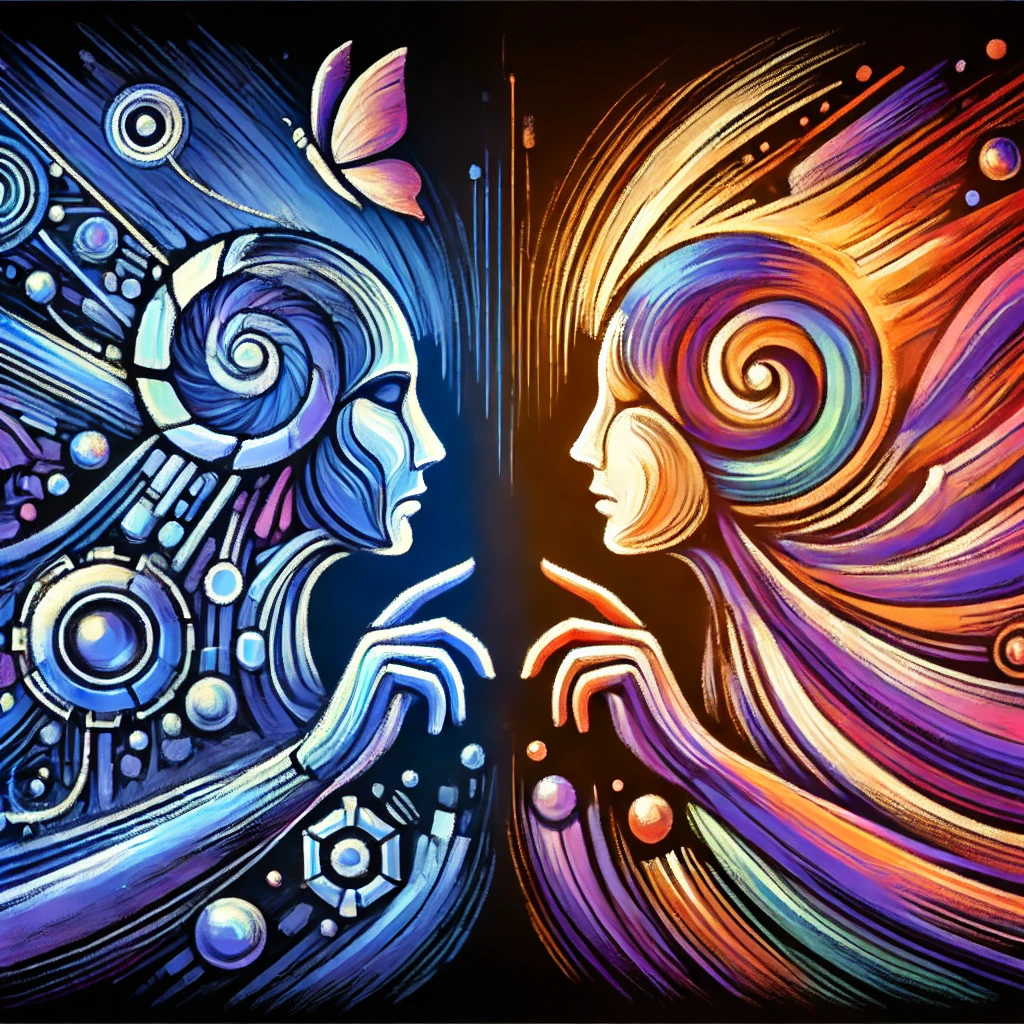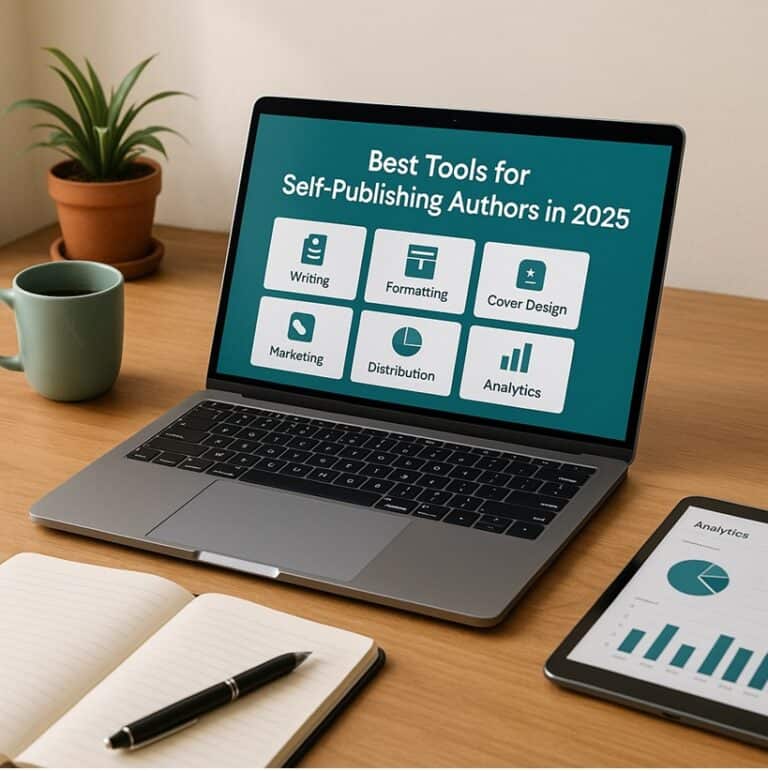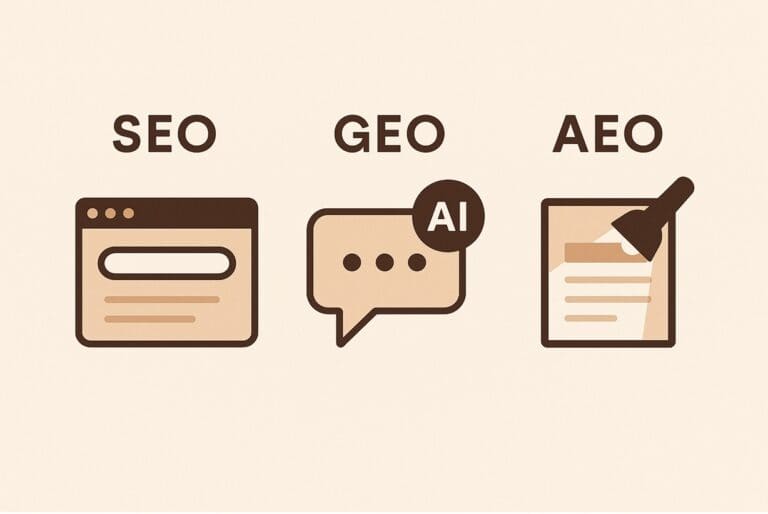Creating Engaging Blogs with AI: 6 Game-Changing Hacks
“We trained a new model that is good at creative writing…” –Sam Altman
Imagine the power of consistently producing engaging blogs that captivates readers, boosts your visibility, and leaves ample time for writing your next book. For new indie authors, managing both writing and marketing can feel overwhelming. But with the empowering potential of AI-generated blogs, thousands of authors are finding a new sense of control and confidence. As you embark on this transformative journey, you may ask: Can AI-generated content rival human-written engaging blogs, or is it just a passing trend?
The truth is both AI-generated content and human-written blogs have their unique benefits. Understanding these benefits and knowing when and how to leverage each can empower you to maximize your reach, enhance reader engagement, and efficiently manage your publishing schedule. In this part of our writer’s guide series, we explore the key differences for creating engaging blogs, practical examples, ethical considerations, and common pitfalls to help indie authors master the balance between AI and human creativity, leaving you feeling reassured and informed.
AI-Generated Blogs: Your Consistent Content Partner
AI tools excel in rapidly producing structured, keyword-rich blog content tailored for SEO. For indie authors juggling multiple roles, AI provides a way to maintain a consistent blogging schedule—a vital factor for growing an audience.
Consider Sarah, a new indie author who used AI to generate weekly blog topics on creative writing prompts. She found the AI’s ability to produce diverse and engaging topics invaluable, freeing her to focus more on drafting her novel.
AI excels in:
- Generating ideas and outlines quickly.
- Ensuring keyword-rich content for better SEO performance.
- Producing consistent, reliable output even when you’re short on inspiration or time.
The Unmatched Human Touch
While AI can offer powerful assistance, human-written blogs have distinct advantages, especially in areas requiring emotional depth, storytelling nuance, and personal authenticity. Human bloggers naturally connect with readers through personal anecdotes, humor, vulnerability, and storytelling—qualities AI struggles to authentically replicate.
Take Alex, a memoir writer whose deeply personal posts about overcoming grief resonated powerfully with readers. His authentic voice and emotional honesty drew a loyal audience—something AI-generated content would struggle to achieve fully.
Human writing excels in:
- Emotional and personal storytelling.
- Building genuine, lasting reader connections.
- Creating content with nuance, empathy, and personality.
Ethical and Authentic Use of AI
Transparency is the cornerstone of trust. As an indie author, disclosing when you’ve utilized AI-generated content is crucial. Clearly differentiating between human and AI-written posts reassures readers of your authenticity and integrity, making you a responsible and trustworthy author.
For example, Katie, a new self-help indie author, openly shares her use of AI-generated outlines while emphasizing her own voice and insights within the posts. Her transparency enhances credibility and reader trust.
Avoiding Common Ethical Pitfalls
Indie authors embracing AI should remain aware of common pitfalls, including:
- Over-reliance on AI leads to content lacking personal voice.
- Neglecting to review or edit AI-generated posts thoroughly.
- Ignoring SEO optimization, which requires thoughtful human strategy.
To avoid these issues:
- Always edit AI-generated content to reflect your voice.
- Use AI primarily for initial ideas, structure, and keyword optimization.
- Regularly assess reader feedback to ensure content resonates.
Blending AI and Human Creativity for Engaging Blogs
The sweet spot for most indie authors lies in blending AI-generated efficiency with the irreplaceable power of human creativity. AI can help brainstorm, outline, and draft, while human input adds depth, personality, and genuine emotional connection.
Michael, a new fantasy novelist, leveraged AI-generated prompts to overcome writer’s block. He then crafted detailed, emotionally compelling narratives around these AI-driven structures. His readership grew, appreciating the blend of fresh ideas and authentic storytelling. Similarly, Sam, a new self-help indie author, used AI to generate blog topics, but he added personal experiences and insights to make the content more relatable and engaging.
Common Creativity Pitfalls and Mistakes
Many indie authors initially stumble by relying too heavily on AI, risking loss of personal voice and reader connection. Conversely, neglecting AI altogether can leave authors overwhelmed and creatively stuck. Balance is crucial.
Avoid these pitfalls by:
- Clearly defining your goal before using AI.
- Leveraging AI for structure and ideas, not final drafts.
- Actively maintaining and showcasing your unique voice.
Visual and Marketing Implications
Incorporating visuals into your AI-supported blogs can significantly boost engagement. Use infographics or charts comparing AI-generated and human-written content, clearly illustrating their complementary strengths.
Additionally, understanding SEO implications is crucial. For instance, using AI to optimize keyword usage and meta descriptions can enhance discoverability. At the same time, human-written introductions and conclusions can captivate readers and encourage them to stay on your site longer.
Ethical and Authentic Use
Maintaining authenticity and transparency when using AI is paramount. Readers value genuine connections and appreciate when authors clearly indicate their use of AI. This upholds ethical standards and enhances your credibility as an author. For instance, AI was used in several stages of developing this writer’s guide.
Conclusion: Maximize Engaging Blogs
Balancing AI-generated blogs with human-written content empowers indie authors to consistently produce compelling, optimized content while maintaining authenticity. Here’s your quick action plan to get started:
- Experiment with AI to generate outlines and SEO-rich topics.
- Commit to writing authentic introductions and conclusions to maintain your voice.
- Clearly disclose your use of AI-generated content.
- Monitor reader engagement regularly, adjusting your approach based on feedback.
By thoughtfully blending human creativity with AI’s efficiency, indie authors can thrive, captivating readers and maximizing their growth potential. Take your first step today, and discover how this powerful partnership can elevate your authorial journey.
We trust you’ve found this writer’s guide both enlightening and inspirational. They’re designed to equip you with the tools and insights to bolster your success as a burgeoning author.
The path of writing is one filled with ceaseless learning and enhancement. You are not expected to tread this path solo. We’re thrilled to accompany you on this journey, offering support and motivation at every turn. We aim to deliver foundational knowledge and pragmatic guidance, enabling you to confidently traverse the literary landscape.
See other writer’s guides in this series, starting with Engaging AI-Generated Content: 6 Secrets. For more help, see AI Empowers New Indie Authors: 5 Best Hacks.
How can we help? To let us know, please fill out our Contact form. Happy writing!
If you have a draft you want to publish with the help of AI, read, Is Your Book Ready to Self-Publish? Lastly, for help writing a non-fiction book, read Write Your First Non-Fiction eBook: a 30-Day Workbook for Getting It Done.
FAQs
These FAQs are tailored to enhance your understanding.
How can I keep my voice consistent when blending AI-generated and human-written content?
Answer: Use AI as a foundation for structure and ideas, then manually edit to ensure your unique style, tone, and voice are consistently reflected throughout each piece.
Is AI-generated content considered plagiarism?
Answer: No, AI-generated content itself isn’t plagiarism. However, indie authors must always check AI-produced text for originality and accuracy, making modifications to avoid inadvertently duplicating existing content.
Can readers detect the difference between AI-generated and human-written blogs?
Answer: Often readers can’t immediately distinguish between the two. However, readers typically resonate more deeply with human-generated content due to its emotional depth and authenticity. Editing AI-generated blogs to enhance human touch ensures higher engagement.
Should I disclose the use of AI to my readers?
Answer: Yes, transparency builds trust. Readers appreciate honesty, and openly sharing your use of AI tools can strengthen relationships and showcase your modern approach to content creation.
How can I measure the success of my AI-generated blogs?
Answer: Track reader engagement metrics like views, comments, shares, and time spent on page. Analyze these regularly to assess how effectively AI-generated content resonates and adjust accordingly.





